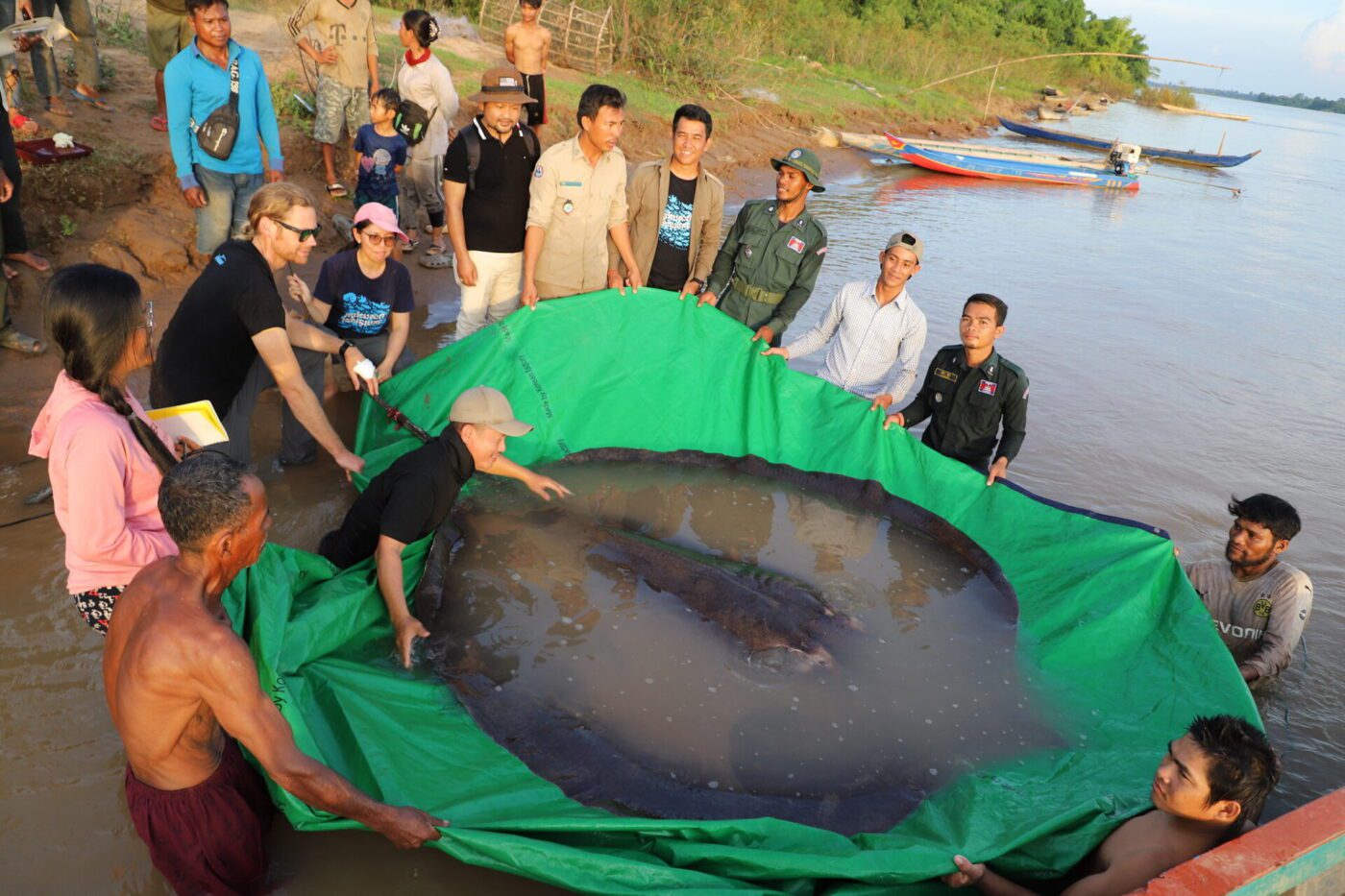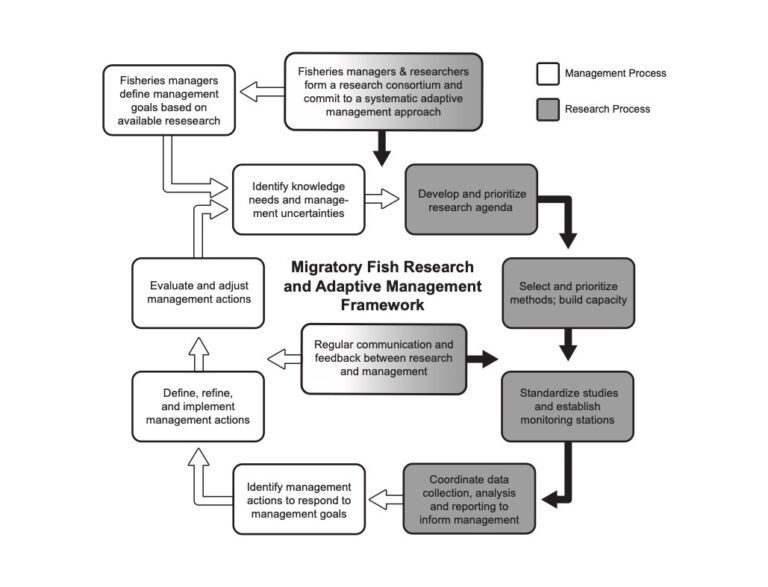Monday August 1, 2022

Migratory fishes in the Mekong River basin need a helping hand. These species are iconic and economically important, but are under serious decline and face many threats. In 2018, FISHBIO organized a workshop for the USAID-supported Wonders of the Mekong Project to convene fisheries professionals in Phnom Penh and identify key knowledge gaps and uncertainties for migratory fishes in Cambodia. FISHBIO staff then spearheaded a publication that built on the outcomes of the workshop (Loury et al. 2021). Published in the journal Fisheries Management and Ecology, the paper describes six priority knowledge needs for migratory fishes and discusses nine relevant methodologies that can be used to address those needs. It also describes a suggested research framework to inform the adaptive management of migratory fishes in Cambodia and the Lower Mekong Basin more broadly.

The difficulty of studying wide-ranging migratory fish species in a large system like the Mekong River has resulted in critical knowledge gaps about their population trends, habitat use, and the timing and scale of migrations. Such gaps make it difficult for managers to understand how these species will respond to threats or conservation efforts, and how management and conservation should be adapted to best meet their needs. The paper reviews six priority knowledge needs that would create a basic foundation to inform management decisions. For example, understanding migration timing as well as migration routes are important to ensure that river connectivity is maintained between critical sites at critical times. Knowledge of fish life cycles, the location of key habitats like spawning areas, and environmental requirements for fish survival is needed to ensure fish reproduction is protected. Finally, basic information on fish population trends is a central component of species-level fisheries management to understand how the abundance of fish populations is changing over time.
The paper highlights a suite of existing fisheries research tools that can be utilized to fill the identified data gaps and answer critical questions about migratory fishes. The authors evaluated the strengths, weaknesses, and appropriateness of nine tools for addressing the various knowledge needs. The tools and techniques include several fisheries-dependent sampling approaches, including landing surveys, logbooks, and Local Ecological Knowledge (LEK) surveys, and the authors note that there has been a strong reliance on these approaches in the Lower Mekong Basin. A shift to fisheries-independent sampling using standardized gears would improve the ability to answer targeted research questions. Specific techniques reviewed include macro and microscopic reproductive studies, captive studies, genetic and molecular tools, otolith microchemistry, mark-recapture and tagging studies, electronic fish counting systems, and hydroacoustic imaging technology. The paper authors emphasize that rather than deferring to the techniques that have been used previously, researchers should select the methods that are best suited to answer their questions, and that methods can be combined to complement or ground-truth one another.

The paper concludes by describing a research and adaptive management framework (Figure 1) that could guide the management of migratory fishes in Cambodia. This would involve creating a research agenda that aligns with management priorities and can be used to evaluate management actions, assess potential options, determine effectiveness, monitor changes, and offer recommendations. A move towards standardized, coordinated data collection approaches over large spatial scales would improve the comparability of studies and help generate powerful data sets. The recent deployment of an acoustic telemetry receiver network and the tagging of a giant stingray in Cambodia are examples of how the use of research technology may soon help shed light on unknown migratory fish behaviors and monitor movements across borders. The challenges that migratory fishes face in the Mekong Basin are serious and numerous, but not insurmountable. Prioritizing migratory fish research and informed management can result in meaningful change to help these culturally and economically important species persist into the future.
This post was featured in our weekly e-newsletter, the Fish Report. You can subscribe to the Fish Report here.
